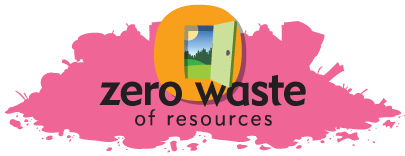Understanding Organics Recycling in the context of cities:
- Tamanna Mohapatra

- Aug 30, 2014
- 4 min read
When I had initially moved to Manhattan 3+ years ago, I used to get very depressed, overwhelmed, and appalled at seeing all the trash around me. Once a week, huge black bags would leave our apartment building, which I would instantly multiply by the number of buildings in Manhattan times number of boroughs in NYC (Manhattan being one of the four boroughs/areas) and feel even more depressed, overwhelmed and alarmed! You get the picture.
Before I knew it I became accustomed to seeing the garbage and started feeling less alarmed and more accepting. That was not a good way to be!
So you may think why feel so alarmed? Well, there were a number of reasons and without going into the statistics of it (which, I know I should to make my point more relevant), I will touch upon them briefly. The reason being this piece is more about the solutions being currently adapted.
Our generation, especially in the developed world tends to be a very disposable economy. We prefer throwing and getting it out of our site vs. repairing, donating, or even recycling. Because throwing is the easiest option and everything else will require a few or many extra steps, energy and time involvement.
Too much waste and nowhere to put the waste has led to overburdened landfills as well as islands in the ocean that are basically destroying our water and soil.
When people don’t know, don’t care, or don’t think about waste, they tend to waste more and over time this becomes a habit and a culture. You can see it when people take ten napkins to eat their food, keep buying plastic mugs for their daily coffee or ask for plastic bags to bag even one item.
Of all the types of waste the one that bothers me most is food waste. This is because with a little bit of preparatory work and a little bit of learning, and lots of good citizenship (this trait is very precious yet quite a bit lacking!), we could do something about it, which would in turn:
Make less waste go to landfills
Prevent the additional green house gases being released into our already overburdened atmosphere from the rotting of this food waste in landfills
Have food waste be converted into either an energy source or organic (i.e. non synthetic) fertilizer.
And part of the good news I recently came across that prompted me to write this article.
WM, one of the largest Waste Management collection companies has already started exploring the food waste-to-biogas concept on a far larger scale, in a pilot project that partners the company with the city of New York and National Grid. The aim for NYC is to reduce its solid waste disposal costs while National Grid boosts its clean energy profile.
Announced last year, the new food waste recovery operation deploys WM’s proprietary food waste pre-processing technology to reduce food scraps to a slurry. The bioslurry is then added to existing biogas digesters at the city’s Newtown Creek municipal wastewater treatment plant. So far the pilot project seems to have exceeded projections. From the present 2 tons per day the operation hopes to ramp up to 50 tons a day by this fall.
The other part of my inspiration for this article was my one on one conversation with a NYC Sanitation department Program Manager (Haley Rogers) who not too long ago was a graduate student at my University.
I met her to discuss success and challenges related to the NYC Organics Collection Program. NYC has launched a pilot program on recycling organic (again this word here refers to non-synthetic) waste in all of it five boroughs. The city government is trying to reduce its solid waste burden by teaching residents (businesses are not participating for now) to separate food waste from other waste streams so that once collected this waste can be diverted from landfills and be converted into biogas (as mentioned in the piece above on WM partnership) with the remaining solid waste being converted into fertilizer through composting. This fertilizer is then redistributed for free to anyone who requests it and used in city parks. Now doesn’t that just bring a smile to your face to see a successful and useful initiative? It did to mine :-)
Here are some of the ways the city is getting its residents to participate in this effort:
They offer Master Composter training programs this will help residents understand the right way to compost.
They offer free tools such as the composting bucket so that residents can get started right away.
Every Manhattan school is part of this program although that has its own bureaucracy challenges.
Not every building needs to participate but if a building wants to, the Program Officers will certainly welcome the interest and help make it a success as well.
To do so anyone (which I did) can sign up through the Apartment Building Recycling Initiative (ABRI).
Here are some of the other equally inspiring ways other cities are fighting waste/food waste:
So even if we all can’t compost yet, we can certainly do our bit by just thinking before reaching for the trash can and thinking of a better second life for that item.












In reply to Debashrita Panda.
I agree, packaging waste is a huge burden. Some companies are trying to resolve this by either using less packaging or more sustainable options..
People do not understand recycling. They proudly use the word dispose off. In cities we actually need to save more but end up wasting stuff because of a lot of packing. We need to have kitchen gardens and use composts.